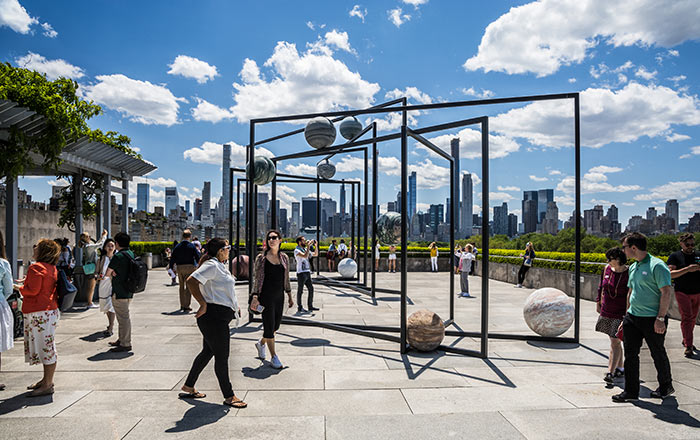Provenance
Amie Siegel American
Not on view
Amie Siegel works between film, installation, photography, and performance, questioning the tropes of cinematic forms. The three-part work Provenance, with its accumulative, filmic representation of economic and political cycles, is characteristic of Siegel's incisive practice. Through its multiple parts, the work strips back the layers of patrimony that influence the cultural value of objects to ask a broad set of contemporary questions about the speculative markets of art and design.
The central video, Provenance, focuses on an emblem of mid-century modernist design—the furniture made by the Swiss architect Pierre Jeanneret for the buildings of Chandigarh, the controversial modernist city in India. Beginning with the furniture's present circumstances as decoration in wealthy homes, the work then traces the furniture's journey in reverse chronology through warehouses, on display at American and European auctions, at a furniture restorer's, on a cargo ship, and, finally, back to their origins in Chandigarh. In their original context, these prized pieces function as everyday office furniture. Their migration as the spoils of modern design discloses the gulf between disparate settings, mapping the undercurrents of larger movements of capital.
Shown with the video are two works that complete the project: Lot 248 (2013), a film that documents the frenzy around the auction of Provenance at Christie's in London, and Proof (Christie's 19 October, 2013) (2013), the printer's proof of the Christie's auction catalogue paper for Provenance embedded in Lucite.
Due to rights restrictions, this image cannot be enlarged, viewed at full screen, or downloaded.


